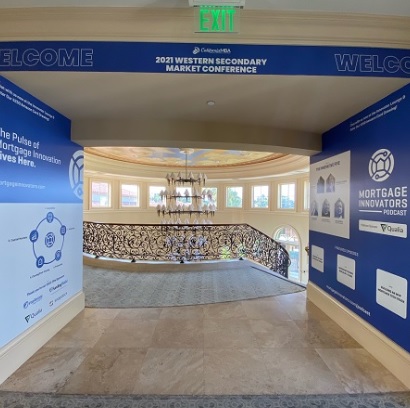A driving crash course is a fast-paced and intensive way to learn to drive in a short period. Whether you’re trying to pass your test quickly or need to boost your driving skills, preparing properly is essential for maximizing your success. To help you get the most out of your driving crash course, we’ve put together the ultimate checklist that covers everything you need to consider before and during your course.
1. Ensure You Meet All Prerequisites
Before you start your driving crash course, make sure you meet all the requirements.
- Provisional Driving License: You must have a valid provisional driving license before you can begin. Make sure it’s up to date and ready for use.
- Age Requirements: Ensure you meet the minimum age requirement for driving in the UK (17 years old or 16 years old for those receiving the mobility allowance).
- Basic Theory Knowledge: Although the crash course focuses on practical skills, having a basic understanding of road signs, rules, and regulations will give you a head start.
- Health Check: Make sure you’re fit to drive. If you wear glasses or contact lenses, bring them with you to every lesson, and inform your instructor if you have any medical conditions that could affect your driving.
Why It Helps: Ensuring you meet the prerequisites saves time on the first day of the course and helps avoid delays.
2. Schedule Your Course at the Right Time
Timing is crucial when booking a driving crash course.
- Clear Schedule: Make sure you can commit to an intensive learning period without distractions. A crash course requires focus and dedication, so choose a time when you’re not juggling other important commitments.
- Off-Peak Period: If possible, try to schedule your course during an off-peak period, such as in winter or early spring. This can give you better availability for lessons and tests, and you might even receive a discount.
- Test Booking: Some crash courses include a test booking, but make sure you’ve booked your practical driving test well in advance to avoid long waiting times.
Why It Helps: Booking your course at the right time ensures you can complete the course without interruptions and take the test as soon as you’re ready.
3. Prepare for Intensive Learning
A driving crash course is all about fast-paced, concentrated learning. Be ready to absorb a lot of information in a short period.
- Get Plenty of Rest: Since the course can be physically and mentally demanding, make sure you’re well-rested. Adequate sleep will help you focus during lessons and retain more information.
- Stay Hydrated and Eat Well: Keeping your body nourished and hydrated helps with concentration and energy levels, which are essential for staying alert during long driving sessions.
- Mental Preparation: Prepare yourself mentally for intensive learning. Take breaks when needed, but stay focused on your goal of becoming a confident driver.
Why It Helps: Physical and mental preparation ensures that you can focus, stay alert, and maximize your learning during the crash course.
4. Review the Theory Behind the Wheel
Even though a driving crash course focuses on practical skills, understanding the theory is still important.
- Road Signs and Rules: Review essential road signs, speed limits, and traffic regulations before your first lesson.
- Use Theory Resources: Some driving schools offer theory apps or online resources. Spend a few minutes each day reviewing common test questions or road rules to reinforce your knowledge.
- Practice Hazard Perception: While most of the hazard perception part of the test is done online, practicing recognizing potential hazards during your lessons can give you an edge.
Why It Helps: Understanding the theory behind the wheel will make the practical lessons easier to grasp and apply during real-life driving situations.
5. Choose the Right Driving School and Instructor
Selecting the right driving crash course provider is crucial for a successful experience.
- Check Reviews: Look for driving schools with positive reviews from past students. A reputable school will have experienced instructors who are comfortable teaching intensive courses.
- Instructor Experience: Make sure the instructor is experienced in teaching driving crash courses. A skilled instructor can help you progress more quickly and effectively.
- Instructor Compatibility: You should feel comfortable with your instructor. The better your relationship with them, the easier it will be to ask questions and learn in a stress-free environment.
Why It Helps: Choosing the right driving school and instructor ensures you get high-quality instruction and a personalized learning experience that suits your needs.
6. Plan Your Test Day Strategy
Your driving crash course will likely involve a practical driving test at the end. Prepare for test day with the following:
- Practice Mock Tests: Many crash courses include mock tests to simulate the real exam conditions. Use these to assess your skills and refine any areas of weakness before the actual test.
- Know the Test Location: Familiarize yourself with the test location if you’re not already familiar with it. Learn about the specific routes and road conditions that may come up during your test.
- Document Checklist: Ensure that you have all necessary documents, including your provisional driving license, confirmation of your crash course, and any additional paperwork the test center may require.
Why It Helps: Planning for test day reduces stress and ensures that you’re fully prepared to take the test with confidence.
7. Prepare for Unexpected Challenges
A driving crash course may throw some challenges your way, but being prepared for the unexpected will make it easier to stay calm.
- Stay Flexible: In case of bad weather or other obstacles, be prepared for changes in lesson times or locations. Keep in contact with your instructor about any changes to the schedule.
- Learn from Mistakes: Mistakes are part of the learning process. Don’t get discouraged if you struggle with certain aspects of driving. Focus on improving and ask for additional practice if needed.
- Positive Attitude: Maintaining a positive attitude, even on challenging days, will keep you motivated and help you progress more quickly.
Why It Helps: Being mentally prepared for obstacles and setbacks ensures that you can handle challenges confidently, making the course more effective.
8. Communicate Your Learning Style
To maximize your learning, it’s important to communicate your preferences to your instructor.
- Tell Your Instructor Your Goals: Make sure your instructor knows what you want to achieve in the course. Whether you need more help with parking, driving in traffic, or specific maneuvers, they can tailor lessons to meet your needs.
- Be Honest About Struggles: If you’re finding certain aspects of driving difficult, let your instructor know. They can offer specific advice and focus on those areas during the crash course.
- Ask for Extra Practice: If you feel you need more time on a specific skill, don’t hesitate to ask for additional practice.
Why It Helps: Open communication ensures that your instructor knows how to best support you, helping you get the most out of each lesson.
Final Thoughts
A driving crash course is the perfect solution for those looking to fast-track their driving education. By following this ultimate checklist, you’ll be fully prepared to get the most out of your crash course and pass your test with confidence. From understanding the theory to staying focused during the lessons, each step will ensure that you’re ready to drive safely and independently. Good luck on your journey to becoming a fully licensed driver!
Impulse Driving School provides driving schools in manchester with ADI-approved instructors. Get ready to pass your test in just 4 weeks. Book now!




